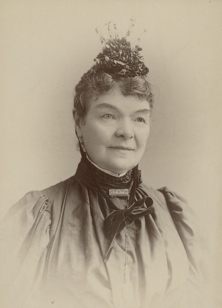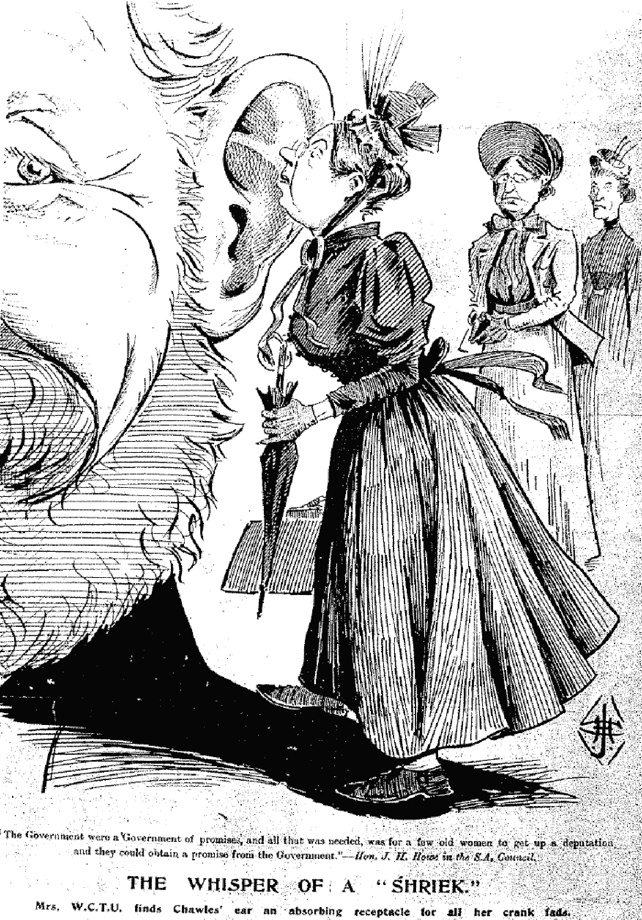Mary Lee was born in Ireland on 14 February 1821. She was a widow when she arrived in Adelaide in 1879, with her daughter Evelyn, to care for her son Ben, who was seriously ill. Ben died the following year, and Mary and Evelyn continued to live in Adelaide.
During the late 1880s, South Australia was suffering hard times. There was a great drought, wheat and wool prices were down worldwide and there were strikes and lockouts. The unemployment rate soared. With no dole or relief, and the collapse of some of the banks, there was great hardship and misery. Mary and her colleagues worked hard to improve the lives of women and children. Mary was older than 60 by this time, but she was always busy. She joined the Social Purity Society and helped found the Working Women’s Trades Union. These groups worked to change the laws relating to young women, and to improve the conditions and wages they were often forced to accept.
Mary Lee believed that equal education for girls was critical if they were to improve their lives and become politically aware. They would also need to be able to vote, to support members of parliament who would make fairer laws. Mary and others formed the Women’s Suffrage League to fight for the vote for women. To spread these ideas, she wrote articles and letters to newspapers, spoke at meetings in drawing rooms, public halls and clubs, and lobbied politicians. Thanks to her efforts and those of others, South Australia became the first Australian colony to grant women suffrage in 1894. It was also the first place in the world where women had the right to sit in Parliament.
Mary Lee kept on fighting for the rights of women until her death on 18 September 1909. She was 89 years old.
Elizabeth Mansutti, Mary Lee, 1821-1909, State Library of South Australia, www.slsa.sa.gov.au/marylee

